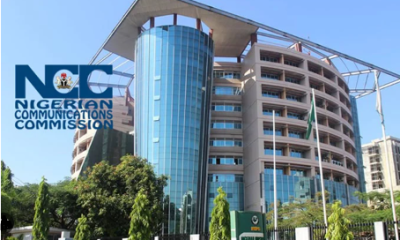The Nigerian Communications Commission (NCC) has said that the country is well-positioned to attract a fair share of the multi-billion dollar global data centre market.
The Executive Vice Chairman of the Commission, Prof Umar Danbatta stated this on Thursday in Lagos at the Telecoms Sector Sustainability Forum organised by Business Remarks.
According to him, by providing a reliable and secure environment for the services they offer within a well-nurtured policy and regulatory framework, Nigeria represents an attractive destination for more investment in data centre services and operations.
He added that the implication of such investments on jobs in the construction, operation, and maintenance of these data centres can only be imagined.
Danbatta noted that Africa has recently assumed a new frontier and compelling destination for global Big Tech players.
These, he said, include Google’s Equiano subsea fibre cable spanning 15,000 km from Portugal to South Africa with strategic landing points in Nigeria and Namibia and expected to increase connectivity more than five-fold within Nigeria while creating an expected 1.6m jobs and Meta’s 2Africa subsea cable scheduled for launch next year and which connects 16 African countries.
Danbatta, who was represented by the Head, of Tariff Administration, NCC, Dr. Sunday Atu, and spoke on the theme “Mainstreaming Data Centres in the Nigerian Digital Economy” said the Federal Government of Nigeria has taken laudable steps to encourage and support data centres services in the country in its drive to ensure data sovereignty.
READ ALSO: Talent Hunt through Hackathon: Three startups receive N10m each from NCC
“This is encapsulated in the National Digital Economy Policy Strategy (NDEPS) Pillar number 3 on Solid Infrastructure which states that; The Government will Promote the Development and Deployment of robust and scalable data center infrastructure. It therefore goes to show that these centres and their potential to attract foreign investment remain massive.
“The NCC has long recognized the imperatives around the sharing of critical resources within the telecoms industry, particularly in relation to recent engagements on regional roaming with the ECOWAS. This is underscored by the Commission’s recent guidelines and framework, leading to the emergence of collocation and infrastructure-sharing entities such as tower companies that rest on this premise. The Commission has also concluded its framework, and further facilitated the test run on national roaming and active infrastructure sharing to further galvanize efficient roll out through well-coordinated network optimization and expansion strategies.”
He added that the evolving primacy of data, encapsulated in the slogan – Data is the new oil – has continued to resonate globally with increasing intensity in the context of the emerging digital economy.
According to him, this is why it has become a subject of special consideration by regimes, requiring appropriate structures and frameworks to truly tap and optimize the opportunities provided by this new order.
“Data centre services, no doubt, hold the keys to the ultimate crystallization of this new line of thinking within the ICT sector and by extension to the greater national economy of nations in so many ways. One of such is the added impetus towards improving the security and reliability of the nation’s digital infrastructure.
“The nature and functional model of data centres with special regard to its centralized architecture, with compelling assurance provides greater guarantee against various malicious attacks and unauthorized access to sensitive information. This is in addition to the efficiency engendered by the robust economies of scale through critical resources shared and made available by Data Centres,” he said.
The NCC boss said the NCC recognised the place of Broadband infrastructure and technology in interconnectivity and its impact on national development, increased content, and social inclusion, adding that policy and regulatory initiatives had been geared towards public investment in broadband backbone networks through harmonization of RoW charges and the allocation of more spectrum for existing mobile and 5G technologies.
Speaking earlier, the convener of the forum, Mrs. Bukola Olanrewaju, noted that data centres alongside fibre-optic broadband expansion and telecom towers are poised to become the new backbone of Africa’s economic growth.
She added that investing in these emerging digital infrastructures necessitates a profound understanding of local dynamics and forward-thinking perspectives.

 Entertainment1 week ago
Entertainment1 week ago
 Business1 week ago
Business1 week ago
 Business1 week ago
Business1 week ago
 Football1 week ago
Football1 week ago
 Entertainment1 week ago
Entertainment1 week ago
 Entertainment6 days ago
Entertainment6 days ago
 Latest1 week ago
Latest1 week ago
 Latest1 week ago
Latest1 week ago













